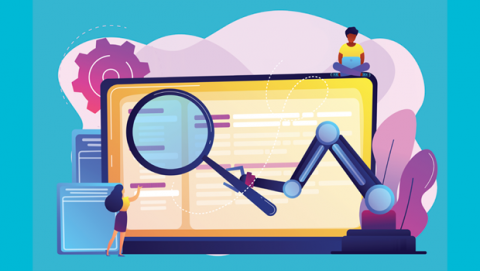As AI/ML solutions become more ubiquitous, choose one that will grow with your organization’s needs. Consider these key questions
Copyright by enterprisersproject.com/
 Organizations are increasingly using artificial intelligence (AI) and machine learning (ML) to solve business problems and transform their operations. These technologies are affecting nearly every process across all industries and becoming imperative for a competitive edge.
Organizations are increasingly using artificial intelligence (AI) and machine learning (ML) to solve business problems and transform their operations. These technologies are affecting nearly every process across all industries and becoming imperative for a competitive edge.
As AI and ML techniques continue to evolve, so do the requirements of the businesses that use them. When choosing an AI/ML strategy, it is important to ensure that the product roadmaps of your prospective AI/ML vendors align with your business’s future objectives in areas such as AI democratization, augmented analytics in BI, and cloud.
[ Need to speak artificial intelligence? Download our Cheat sheet: AI glossary. ]
Here are a few key questions to consider when choosing an AI/ML strategy and solution:
1. How will your solution save my team time?
There are plenty of open source tools and solutions out there that you can cobble together to get the job done for little or no cost. If you’re going to shell out real money for a data science platform, you need to see tangible ROI.
Data preparation
Data preparation dominates most data science projects, turning your data scientists into expensive, and often unproductive, data engineers. To counter this, it’s important to choose a platform that makes data acquisition and transformation easy. These data engineering features should be seamlessly integrated into the modelling workflow.
Model selection
Another area ripe for optimization and automation is model selection. The platform should provide access to a variety of models, open-source and proprietary, and recommend the best model for the job.
Thank you for reading this post, don't forget to subscribe to our AI NAVIGATOR!
Feature stores
Feature development is often a time-consuming and error-prone process. Choose a platform that integrates with a variety of “feature stores,” like Feast or Uber’s Michelangelo to reduce duplicative work and drive consistency across data science projects and teams. […]
Read more: enterprisersproject.com


As AI/ML solutions become more ubiquitous, choose one that will grow with your organization’s needs. Consider these key questions
Copyright by enterprisersproject.com/
As AI and ML techniques continue to evolve, so do the requirements of the businesses that use them. When choosing an AI/ML strategy, it is important to ensure that the product roadmaps of your prospective AI/ML vendors align with your business’s future objectives in areas such as AI democratization, augmented analytics in BI, and cloud.
[ Need to speak artificial intelligence? Download our Cheat sheet: AI glossary. ]
Here are a few key questions to consider when choosing an AI/ML strategy and solution:
1. How will your solution save my team time?
There are plenty of open source tools and solutions out there that you can cobble together to get the job done for little or no cost. If you’re going to shell out real money for a data science platform, you need to see tangible ROI.
Data preparation
Data preparation dominates most data science projects, turning your data scientists into expensive, and often unproductive, data engineers. To counter this, it’s important to choose a platform that makes data acquisition and transformation easy. These data engineering features should be seamlessly integrated into the modelling workflow.
Model selection
Another area ripe for optimization and automation is model selection. The platform should provide access to a variety of models, open-source and proprietary, and recommend the best model for the job.
Thank you for reading this post, don't forget to subscribe to our AI NAVIGATOR!
Feature stores
Feature development is often a time-consuming and error-prone process. Choose a platform that integrates with a variety of “feature stores,” like Feast or Uber’s Michelangelo to reduce duplicative work and drive consistency across data science projects and teams. […]
Read more: enterprisersproject.com
Share this: